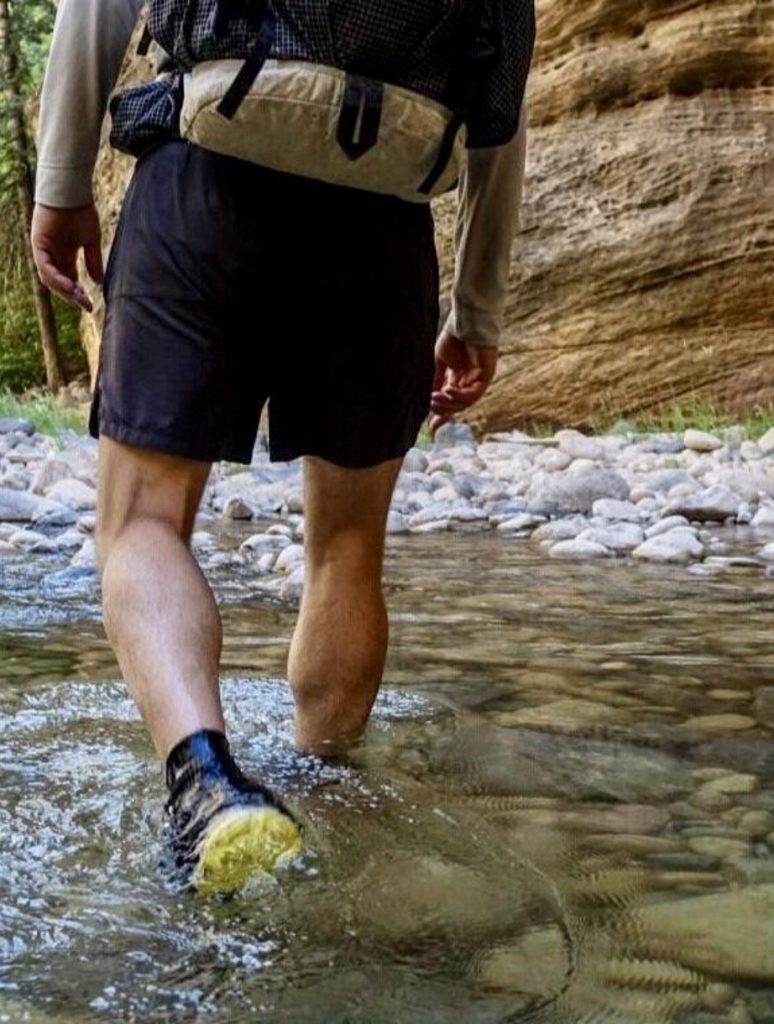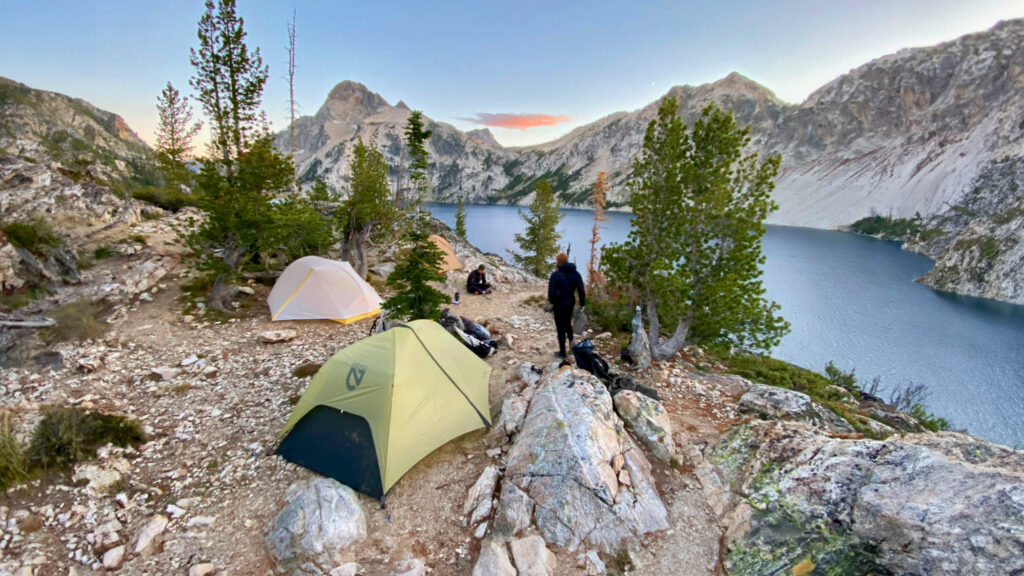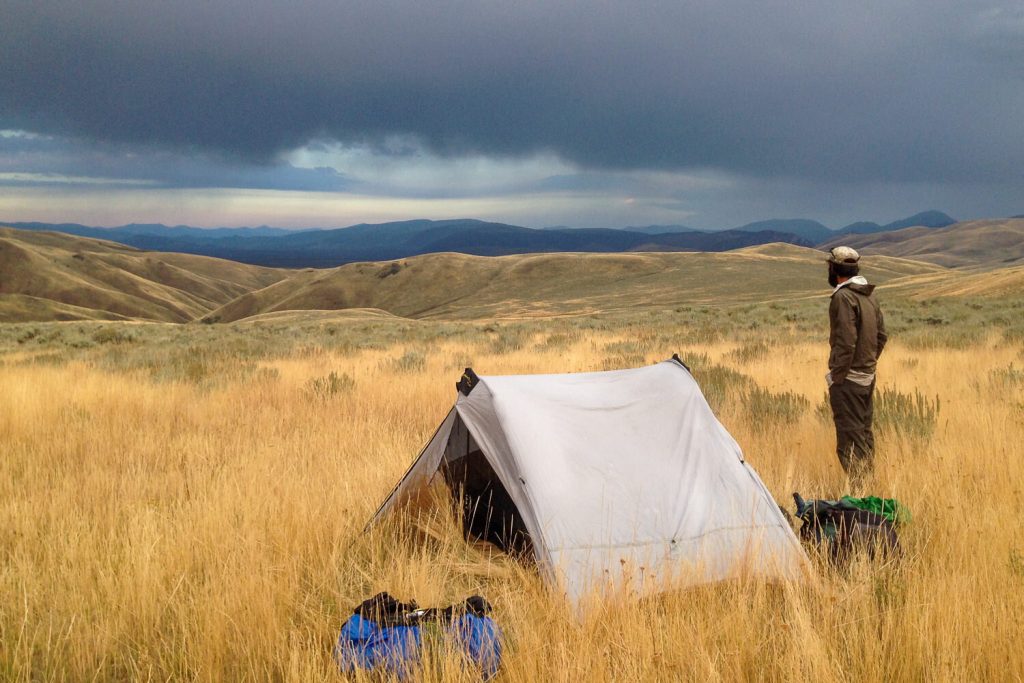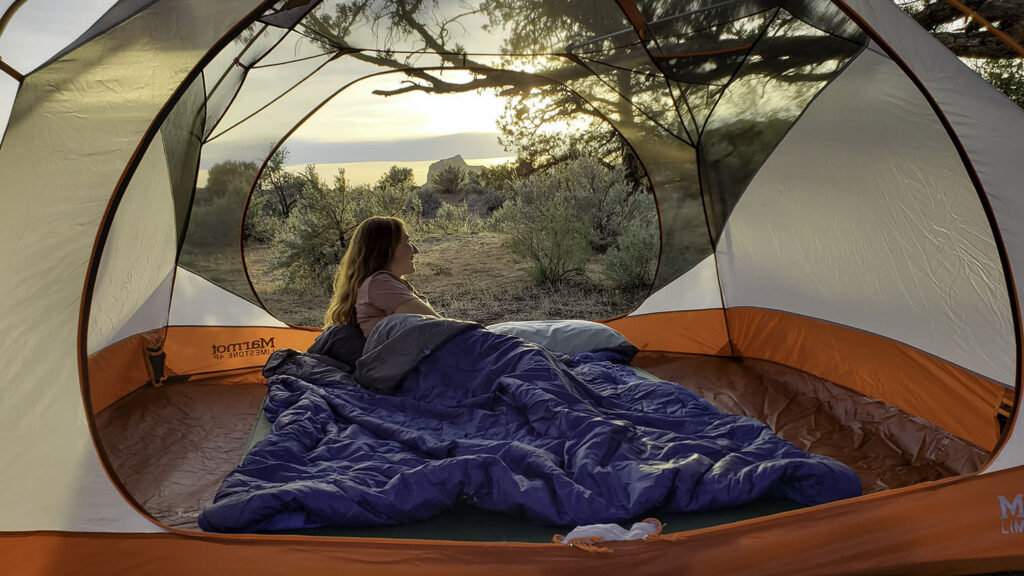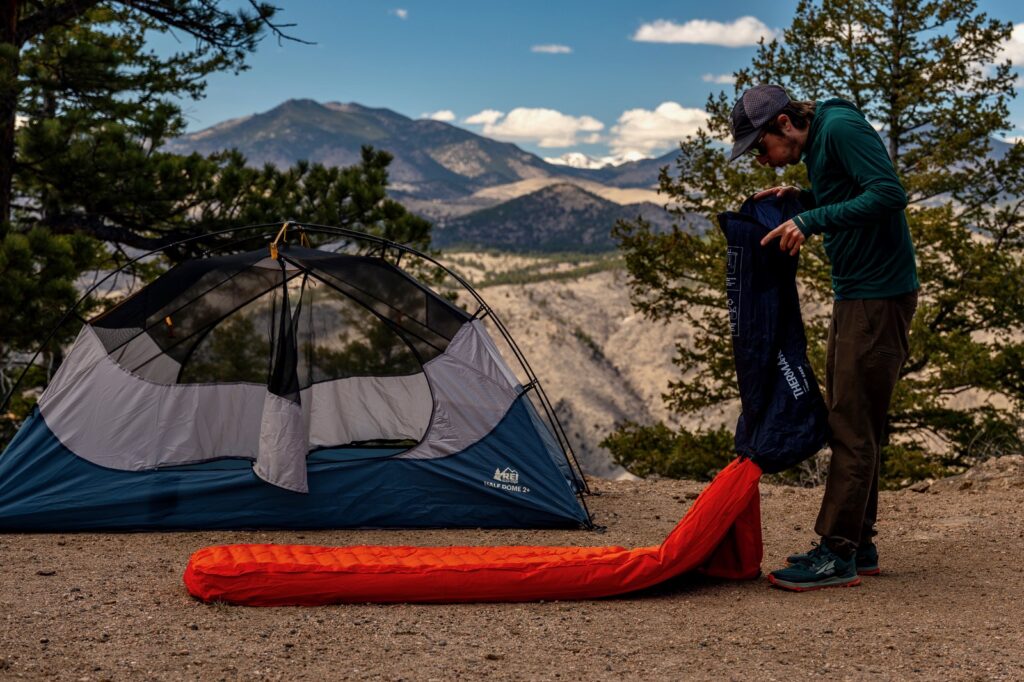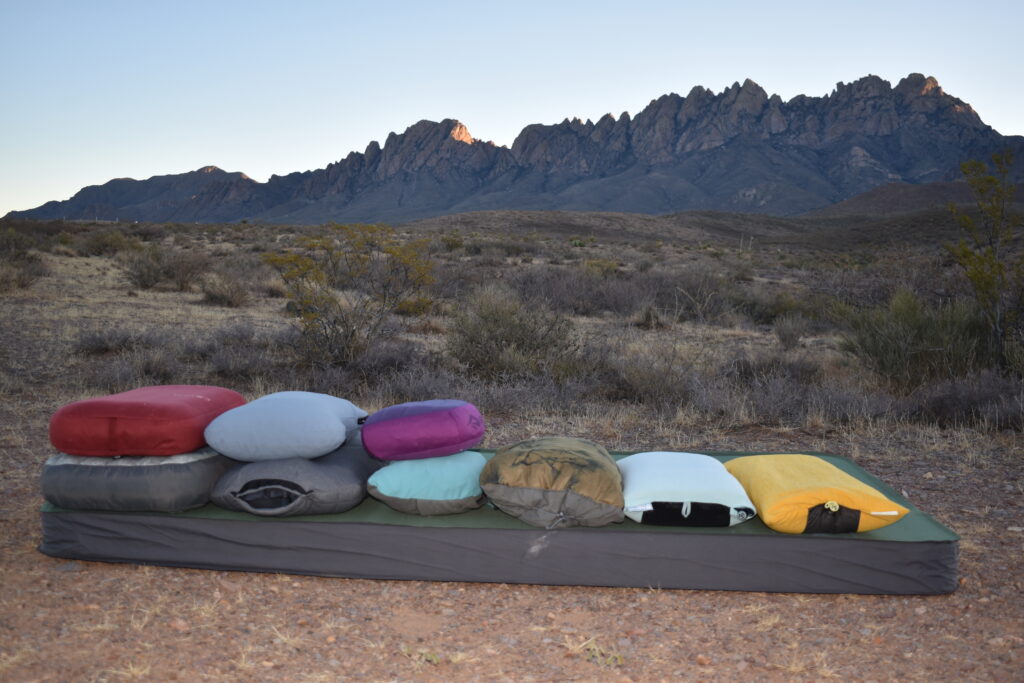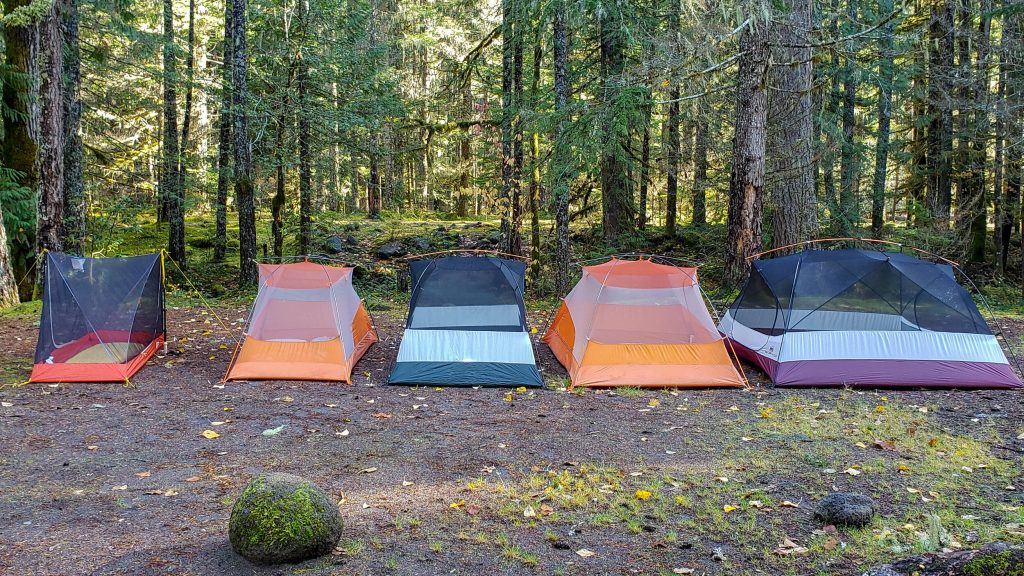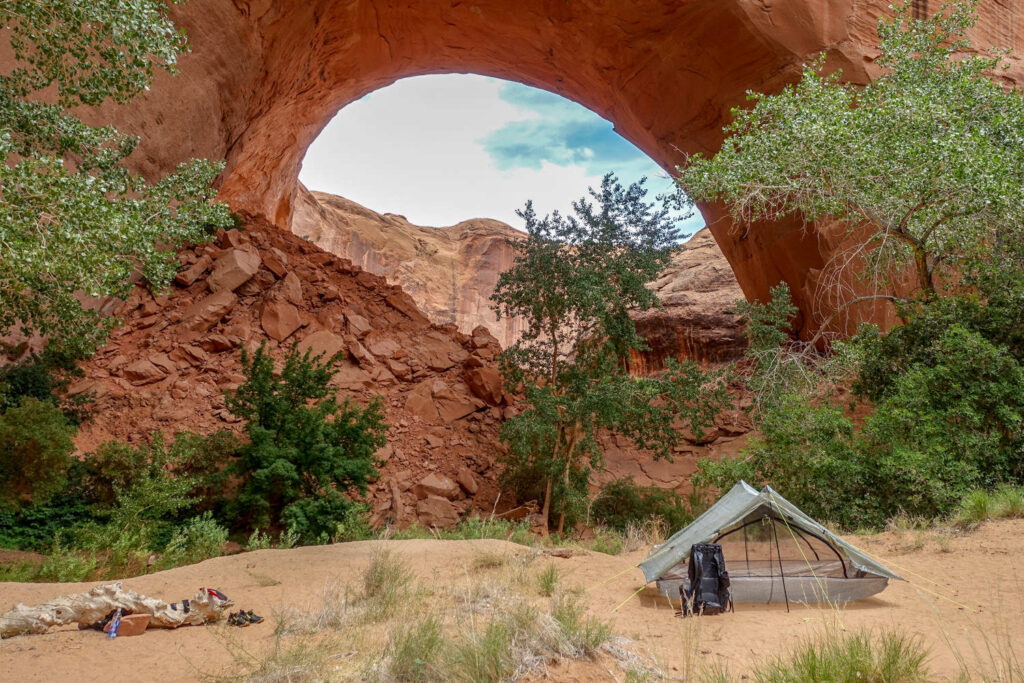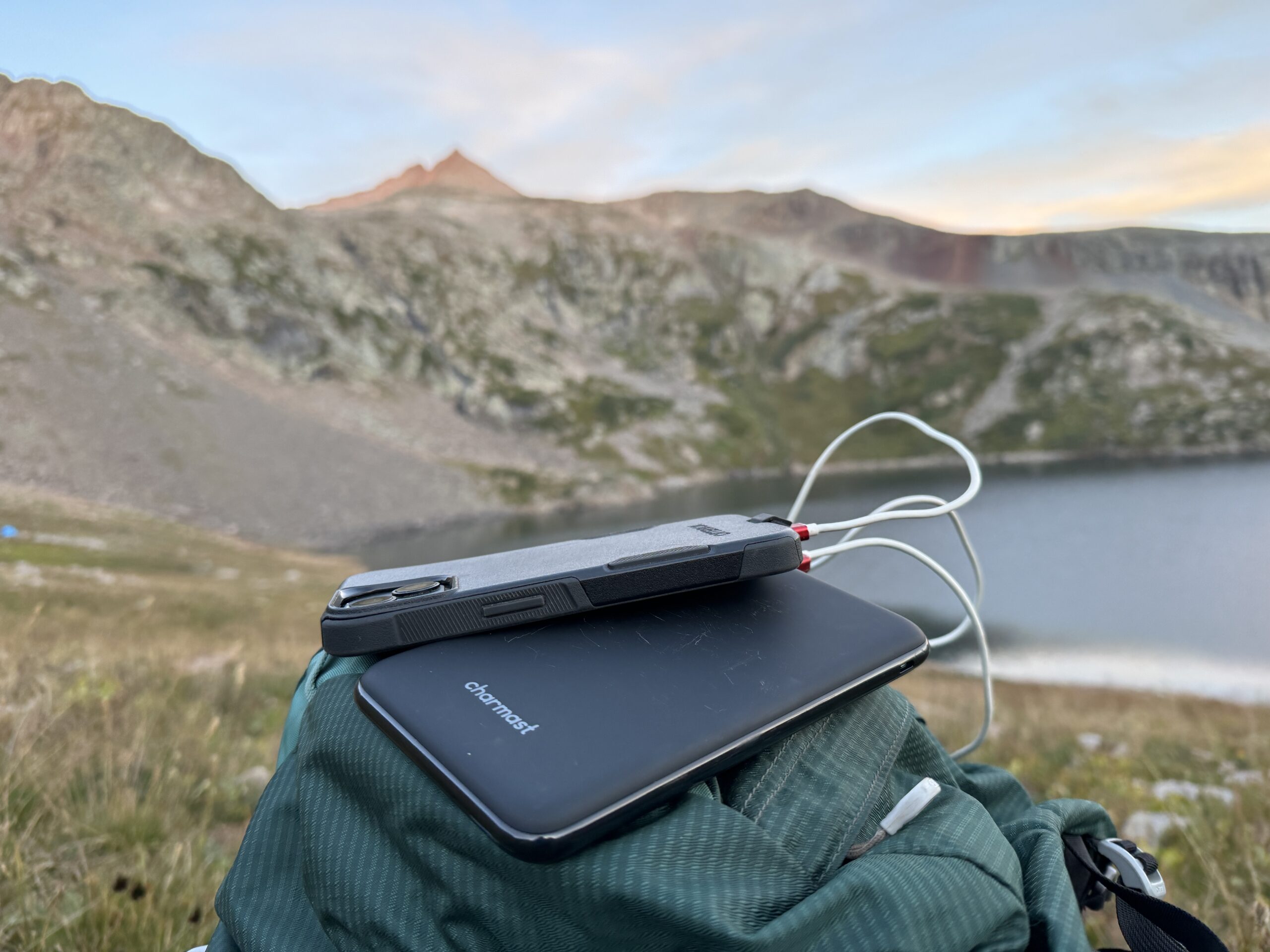
Bottom Line
At 26,800 mAh, the Charmast is the largest capacity power bank we tested and one of our favorites. We were pleasantly surprised to see it frequently beat out smaller-capacity power banks in areas such as weight, efficiency, portability, and durability. On backpacking trips, we often found ourselves reaching for this bank over many of the other high-capacity power banks and are impressed by its thin, sleek design.
Some notable wins for this power bank include its low weight and that it is one of the most efficient battery packs we tested. The Charmast 26800 packs a lot of power in every ounce. In addition to its base features, we find it easy to use. It sports three input and four output ports, allowing maximum flexibility. One of the output ports supports quick charging, and this power bank automatically initiates trickle charging for small electronics. For backpackers looking for the most power in one of the best-designed banks, look no further!
Quick Specs
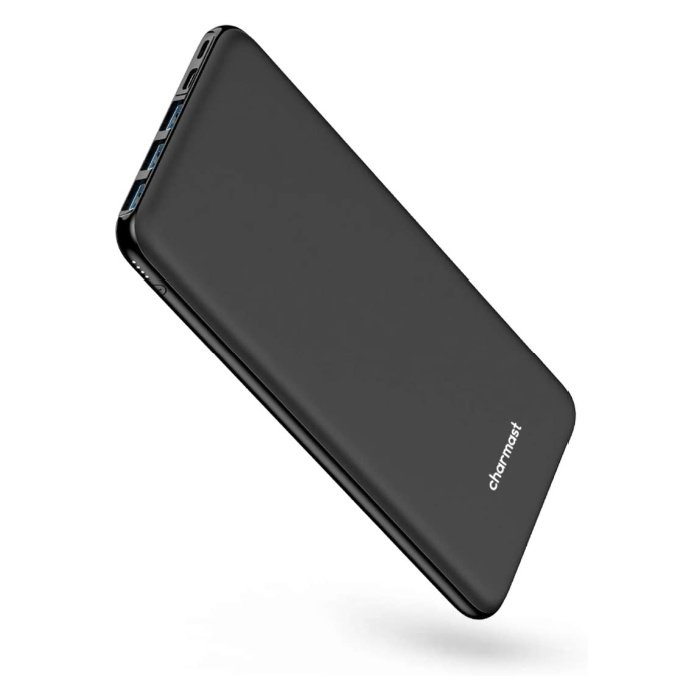
Charmast 26800 mAH Portable Charger
Best Large-Capacity Power Bank
CleverHiker Rating: 4.3/5.0
Price: $30
Weight: 12 oz.
mAh: 26,800
Time to full charge: 7 hrs (USB-C)
Pros
- Excellent value
- High charging capacity
- Charges multiple devices at once
- Lots of power in comparison to weight
Cons
- Loses capacity in cold temperatures
- Takes longer to charge than some
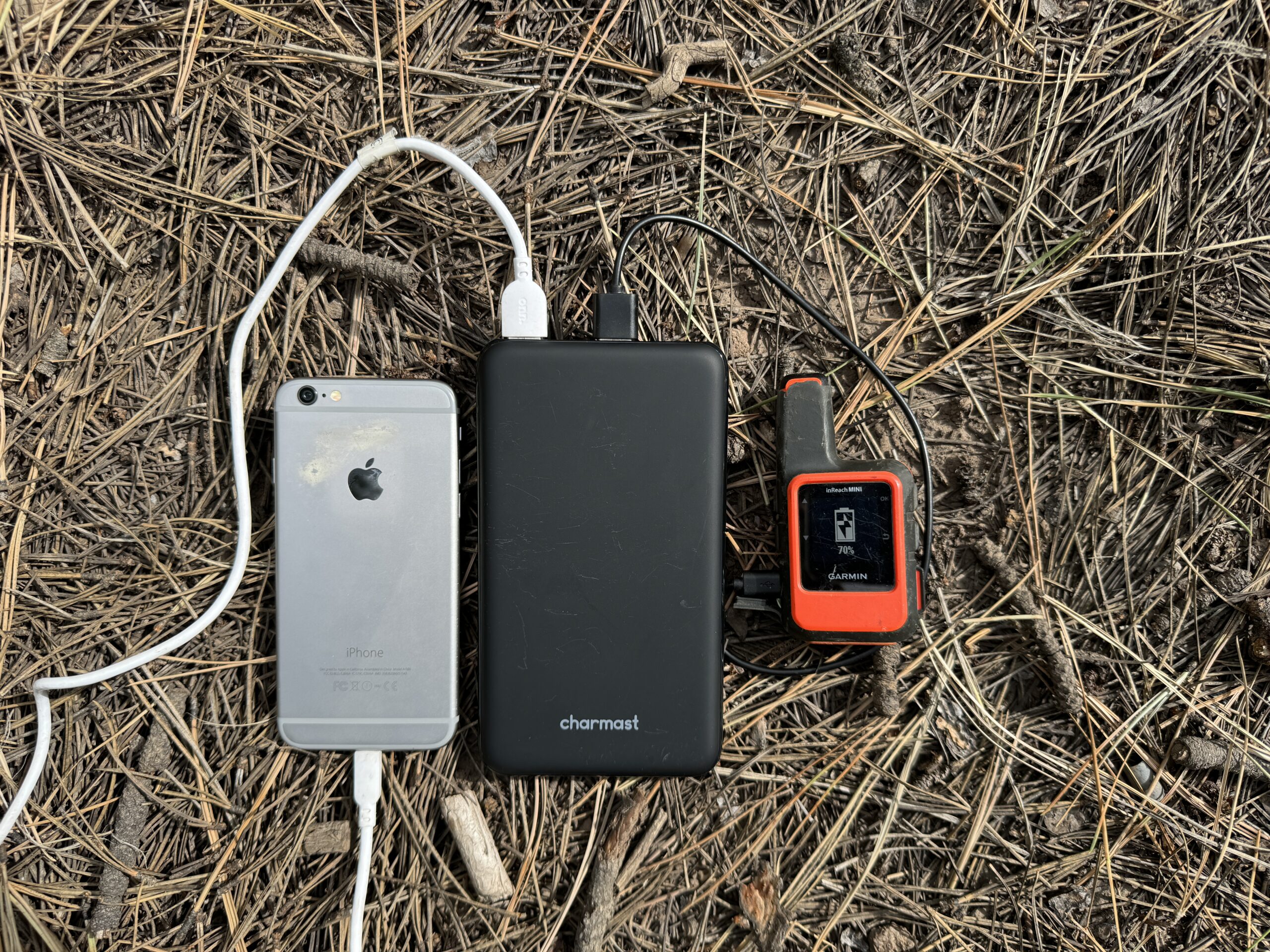
Efficiency
Not only is it the lightest large-capacity power bank, but the Charmast is also the most efficient. This shouldn’t come as a huge surprise: being both the lightest and the highest capacity in our lineup, it should offer plenty of charging power for every ounce of weight. However, power banks are notorious for having less power available than is listed on the packaging, so we wanted to make sure. To test this, we used a multimeter and dummy resistor load to drain the battery while simultaneously recording the power output. After a few calculations, we confirmed that the Charmast is the most efficient large-capacity power bank we tested.
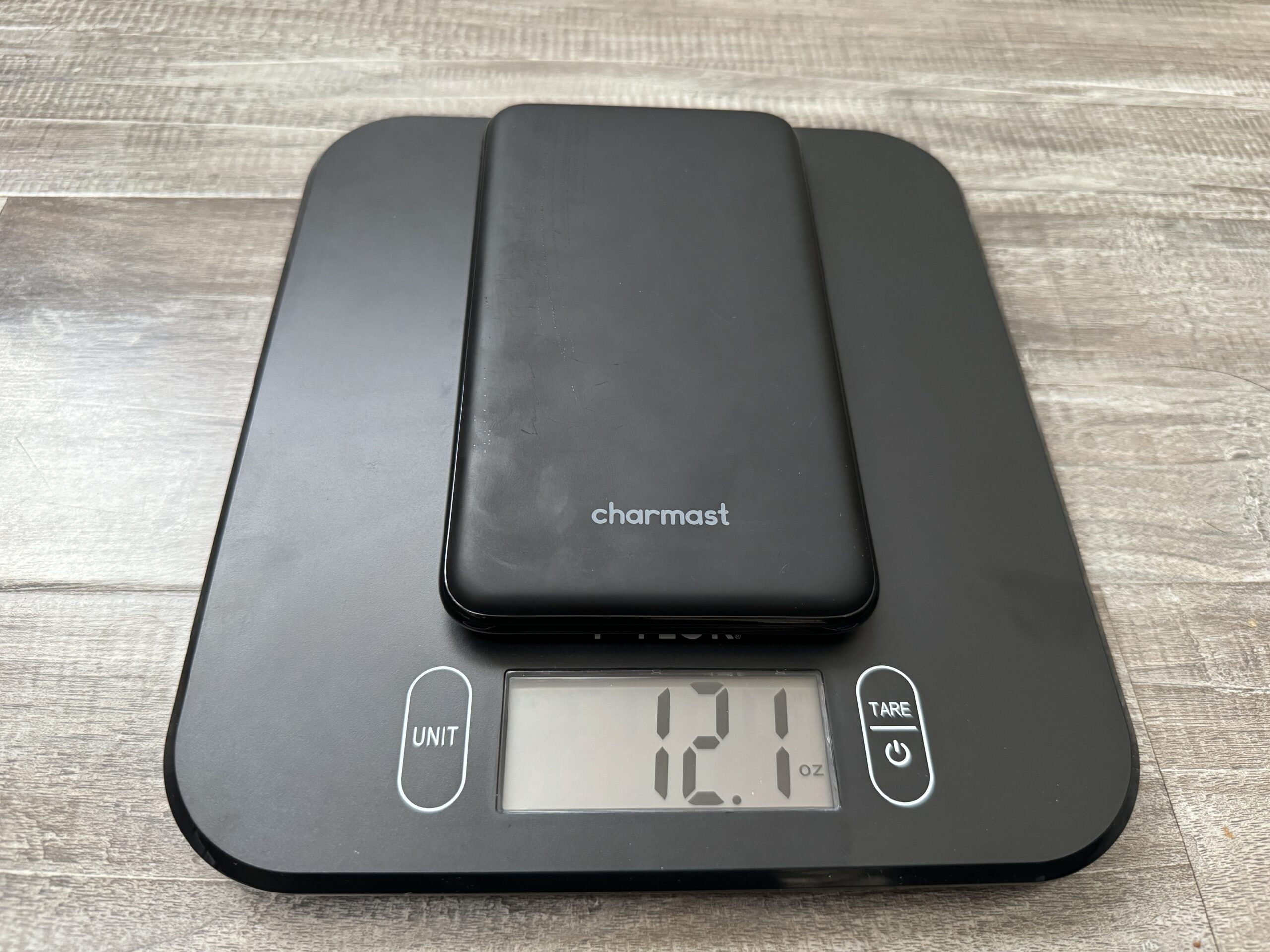
Weight & Packability
Given the considerable power capacity of the Charmast, it is surprisingly lightweight. Don’t get us wrong; it weighs more than any of the small-capacity power banks we tested. However, when placed on our scale, it was the lightest battery pack with over 20,000 mAh of power. This is an impressive feat, particularly considering it beat out two power banks that were 6,800 mAh smaller. We also appreciate that it was lighter on our scale than the listed specification. Amazon lists the weight as 14.9 ounces, and other sources list it as 15.2, but our measurements showed it was around 12 ounces.
Big batteries tend to take up lots of space, but the thin profile of the Charmast makes it easy to carry. We were curious how the different shapes of the large-capacity power banks we tested would impact portability. On one side, we have the Charmast, which is very thin but compensates as a pancake would- by spreading out more. Others are thicker but not so broad or are shaped like bricks. To answer this question, we measured the length, width, and height of every power bank we tested to find the total volume.
We discovered that the Charmast has one of the smallest total volumes of our large-capacity battery packs. It feels more streamlined, and the slimmer design adds an extra sense of being lighter than it is. It all comes down to preference and where a user wants to place the bank. The Charmast performs better in thin but wide spaces such as tent side pockets, whereas others fit better into pants pockets. Given its size, the Charmast did well in this category.
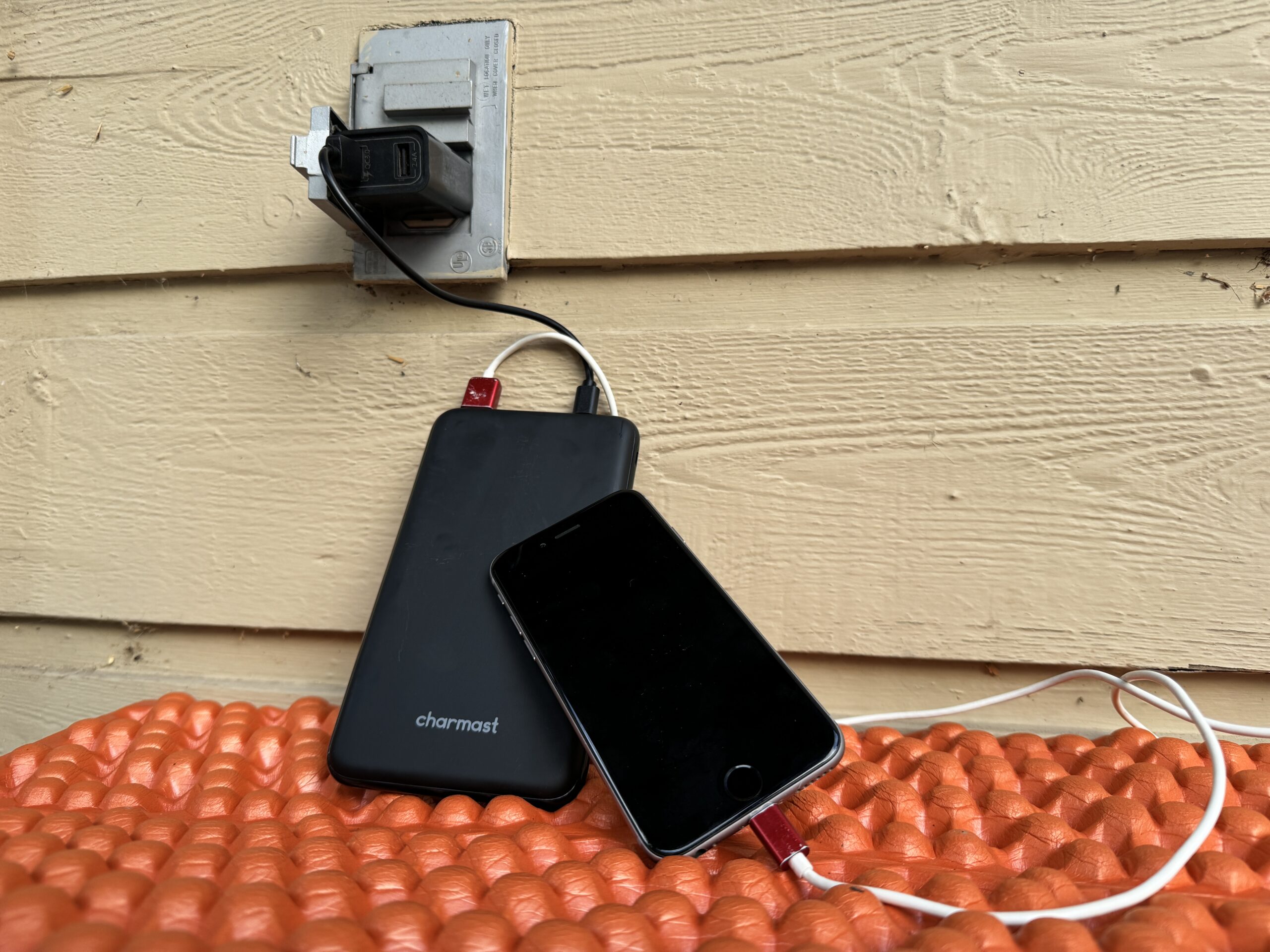
Durability
Aside from some minor cosmetic damage, the Charmast stood up beautifully to everything we threw at it, including being dropped and jumbled in the backcountry. Like many of the power banks we tested, the Charmast has an outer coating that easily scratches. The abrasions on our model occurred mainly from being carried loose in a bag full of other power banks and from our drop test. Users should be aware that sliding off of a rock or other regular use will cause some wear over time. Fortunately, this did not affect the integrity of the Charmast, and it still charged devices after passing our eight-foot drop test.
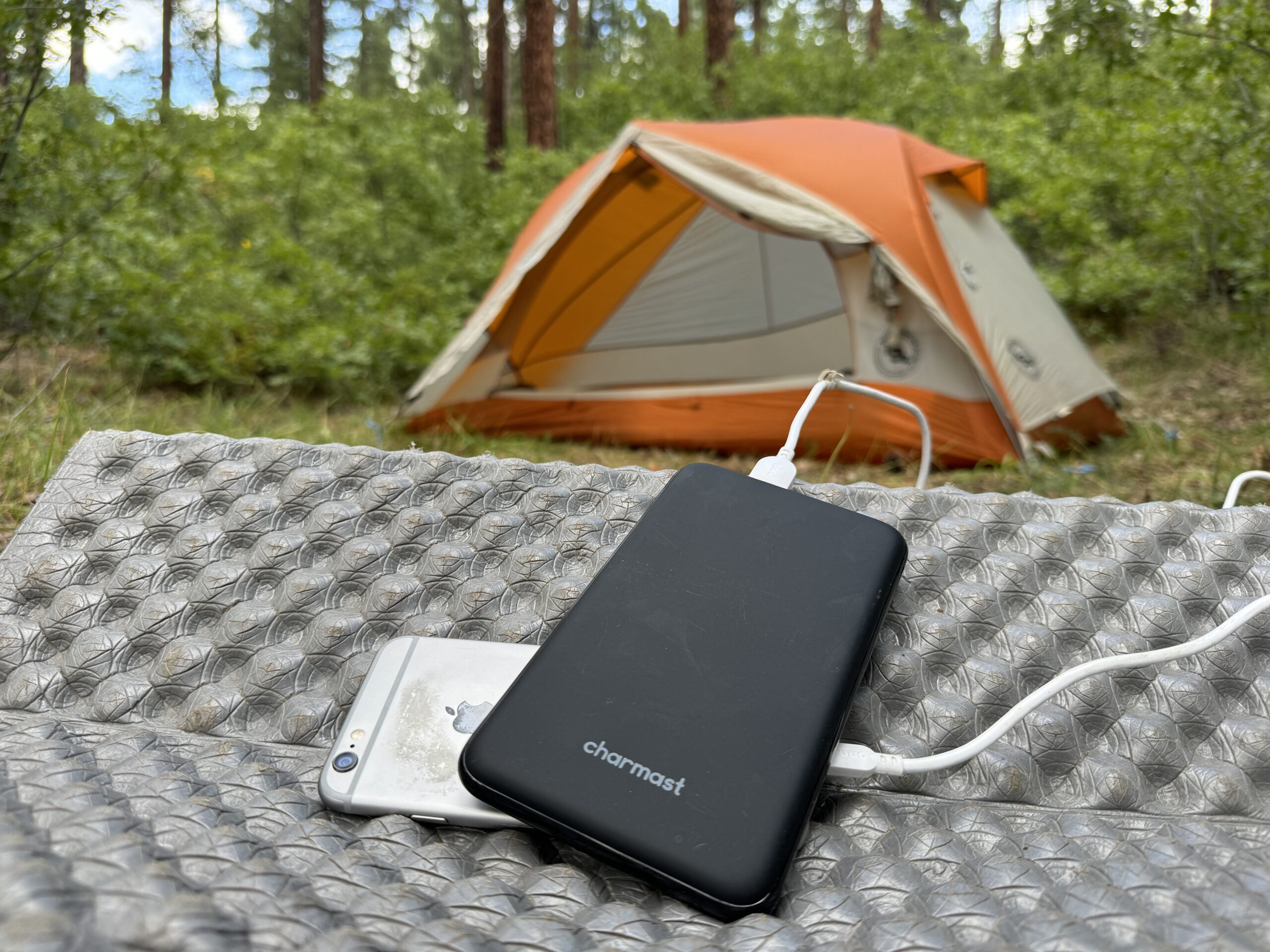
Charging Speed
The biggest weakness of the Charmast is the amount of time it takes to recharge. During our tests, it took longer than any other power bank to recharge, just shy of seven hours. Even other large-capacity power banks performed much better in this category – some finishing 30 minutes earlier. That time can add up when resupplying in towns or trying to get out the door on a last-minute trip.
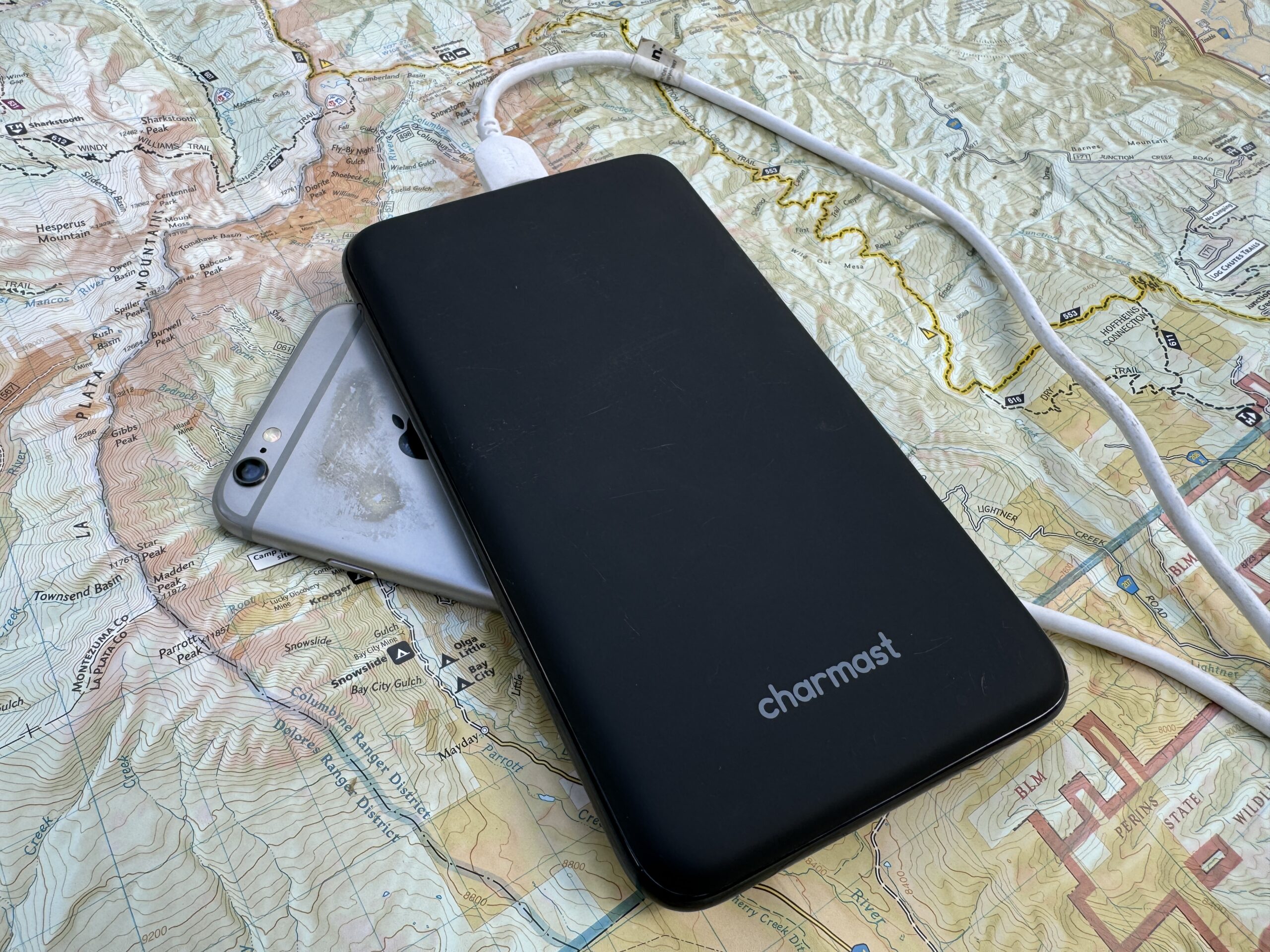
Features
One of the great things about a larger power bank is room for more features, which the Charmast has plenty of. A feature that sets it apart is having three input and four output ports. This provides many options should you lose a charging cable or need to charge multiple devices simultaneously. Like most power banks, the Charmast allows for pass-through charging, which means that a device can be charged off the power bank while the bank itself is being charged. This power bank also has a quick charge port to charge phones faster and can recognize when a low current is needed for smaller electronics. All in all, there are plenty of usable features!
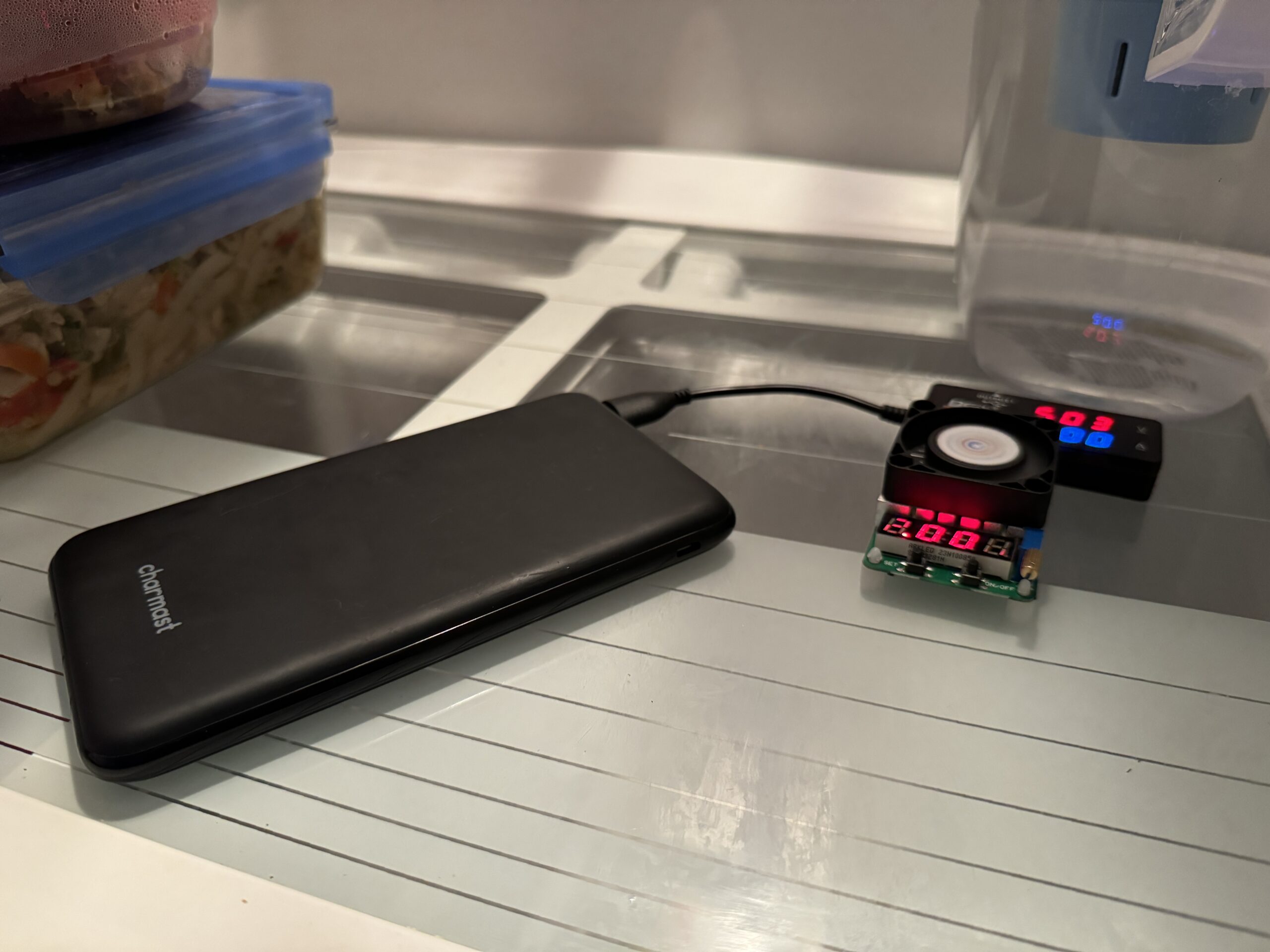
Cold Charging
The Charmast has many strengths, but performance in cold temperatures is not one of them. As backpackers who hit the trails year-round, we know how important cold-weather performance is in the shoulder seasons and winter. When the days are short and the nights are long, it’s hard to avoid cold temperatures when needing to recharge electronics. To test for this, we drained each test bank again using our multimeter and dummy resistor load, but this time, we placed the whole setup inside a refrigerator. We were disappointed to see that the Charmast lost 6.7% of its total output in cold temperatures compared to its performance at room temperature. It is not its most shining moment, but it is not the complete end of the world as long as some precautions are taken on the trail.
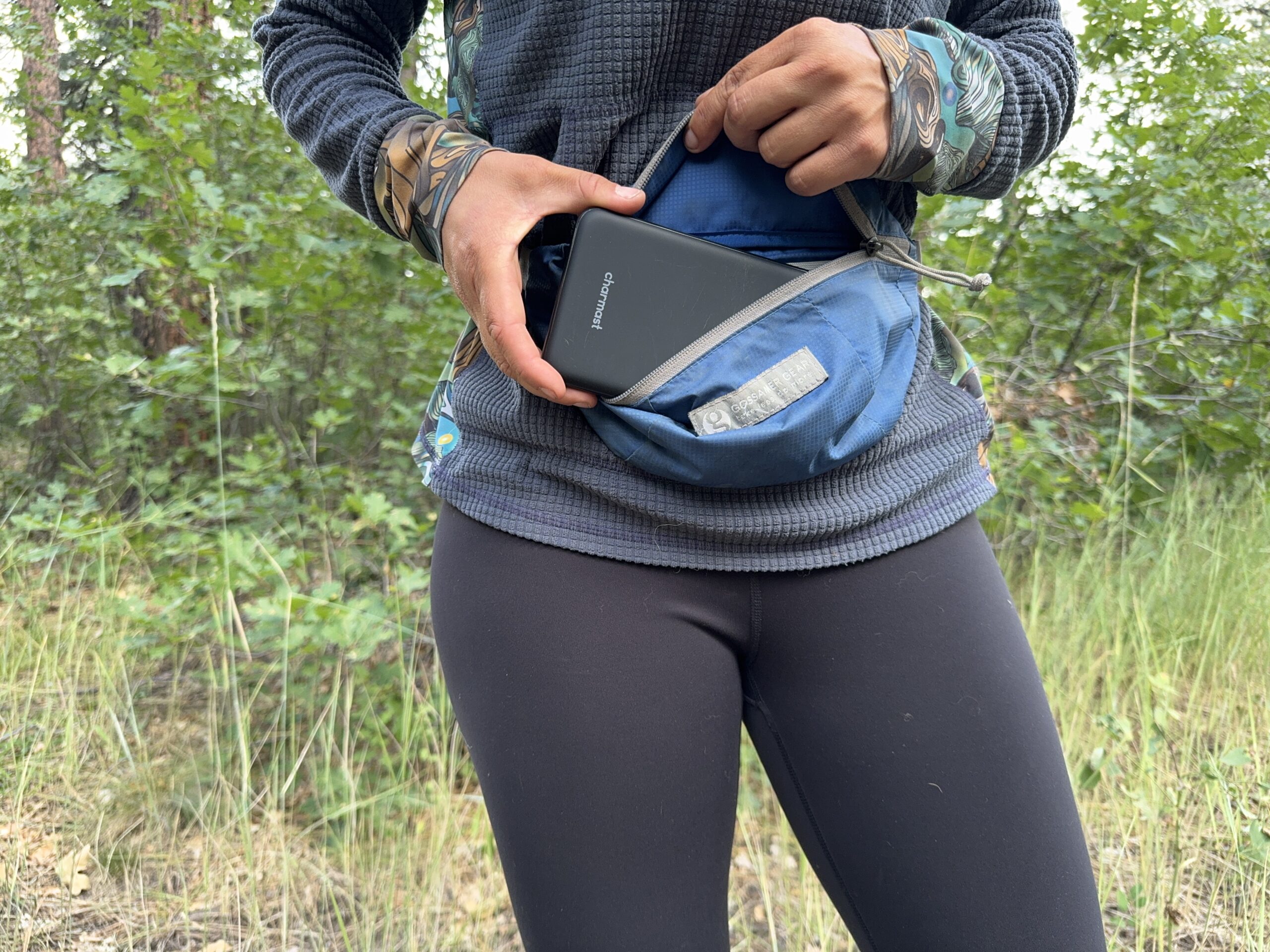
Should You Buy the Charmast 26800 mAh?
While we love the Charmast 26800, we recognize that this power bank might not be the best choice for everyone. However, if you are planning longer backpacking trips or thru-hiker resupplies in the range of a week or more, then a higher-capacity power bank such as the Charmast is a good fit. We have also found that folks using a lot of battery while hiking benefit from a power bank of over 20,000 mAh like this one. Activities that use a lot of battery include taking pictures and videos, listening to podcasts, or recording a track on a GPS app. Conversely, the average backpacker who will only be out for a few days and limit their phone usage during that time likely does not require a large capacity power bank like the Charmast.
What Other Power Banks Should You Consider?
UGREEN 145W Review: In the over 20,000 mAh category, this bank is an excellent choice. Like the Charmast, it also has a fast charging port, and the digital display makes it easier to estimate how much battery is left. Using the same wall charger, it charges slightly quicker than the Charmast. With a specialized wall charger, that time could be greatly reduced, solving one of the main problems with the Charmast.
INIU 20000 PD Review: The INIU had many similarities to the Charmast overall, with a smaller overall capacity of 20,000 mAh.
BioLite Charge 80 PD Review: Another solid choice is BioLite, which offers increased cosmetic durability and better cold-temperature performance.


